Evidence Action, 2023
Implementing Partners: Evidence Action, Governments of Malawi, Kenya, Uganda, and India
Published In: COP28 Prospectus of Climate-Health Solutions, 2023
Evidence Action, 2023
Implementing Partners: Evidence Action, Governments of Malawi, Kenya, Uganda, and India
Published In: COP28 Prospectus of Climate-Health Solutions, 2023
Over 2 billion people globally lack access to safe drinking water, with contaminated water claiming the lives of over 1,000 children every day. Unsafe water causes diarrhea, malnutrition, typhoid, cholera, and hepatitis. Problems with unsafe water are exacerbated by climate change, as rising temperatures and extreme weather events lead to increased microbial contamination, thereby causing spikes in waterborne illnesses. For example, repeated cyclones in Malawi recently created the longest cholera outbreak on record, spanning more than a year. Water quality is a critical pathway through which climate change impacts health, and chlorination serves as a potent preventive measure. Chlorination has an outsized and highly cost-effective impact on health, with studies showing it can reduce under-five child mortality by 25%.
Evidence Action installs chlorine dispensers at existing rural water points, enabling community members to treat their water for free at the point of collection.
Dispensers are installed for free at water points serving more than 10 households. The model is simple: a user goes to their water source, places their bucket under the dispenser, turns the valve to dispense the correct dose of chlorine, then fills their bucket with water. The chlorine disinfects the water during their walk home, and it is safe to drink by the time they arrive.
The program leverages sub-national government support and extensive community engagement including over 100,000 volunteers to ensure local buy-in. Communities help identify suitable water points, provide installation resources, and elect two volunteer “promoters”. These promoters educate their community on water treatment, refill their dispenser, and inform Evidence Action of necessary repairs.
Developing a cost-effective and scalable delivery model was not easy. Success required a complete and efficient supply chain that reached remote areas, supporting a network of tens of thousands of dispensers across three different countries. This endeavor relied on collaboration with communities to ensure active engagement and required Evidence Action to build a large and flexible field staff team, ultimately achieving a less than 72-hour turnaround for dispenser maintenance.
In total, from 2015 to 2021, the program spent USD37 million, an average of $1.50 per person per year. Funding was secured from many sources, with 20% of the program funded by sale of carbon credits and the remainder provided by philanthropic donors.
Evidence Action’s chlorine dispensers provided safe water access to over 4.5 million people annually from 2015-2021, preventing an estimated 3 million cases of diarrhea, averting 15,000 child deaths, and saving more than 275,000 disability adjusted life years (DALYs). This translates to a cost of approximately $3,000 per death averted and $130 per DALY averted.
After receiving significant investment in 2022, the program doubled its impact within 15 months to reach more than 10 million people across Uganda, Malawi, and Kenya. Health improvements resulting from water treatment are particularly significant for children under five living in poor rural communities – one of the most neglected and vulnerable populations in the world.
While existing centralized treatment systems are expensive and prone to failure during extreme weather events, Evidence Action’s localized water treatment approach is more resilient to these impacts. Chlorine is already a widely used disinfectant globally, and India’s recent adoption of in-line chlorination to provide safe water to rural communities is an encouraging development. Low-cost delivery models have demonstrated their adaptability to meet diverse needs of different communities. Additionally, without chlorine, communities resort to less effective treatment methods like boiling water. By reducing the need for boiling, chlorine dispensers reduce indoor air pollution and generate UNFCCC-audited carbon credits.
The initiative has also sparked innovation, leading to the development of a complementary, next-generation in-line chlorination intervention that leverages learnings from scaling up dispensers. In-line chlorination is a low-tech, low-maintenance solution that can be installed directly into pipes, eliminating the need for behavior change. There is immense potential to expand these chlorination technologies and complementary chlorination interventions to new geographies and contexts. For example, Evidence Action has begun piloting a technical assistance model with the Indian government to scale in-line chlorination across two states, with the goal of reaching 40 million people. The program’s scalability and transformative impact hold the promise of reaching countless communities in need worldwide.
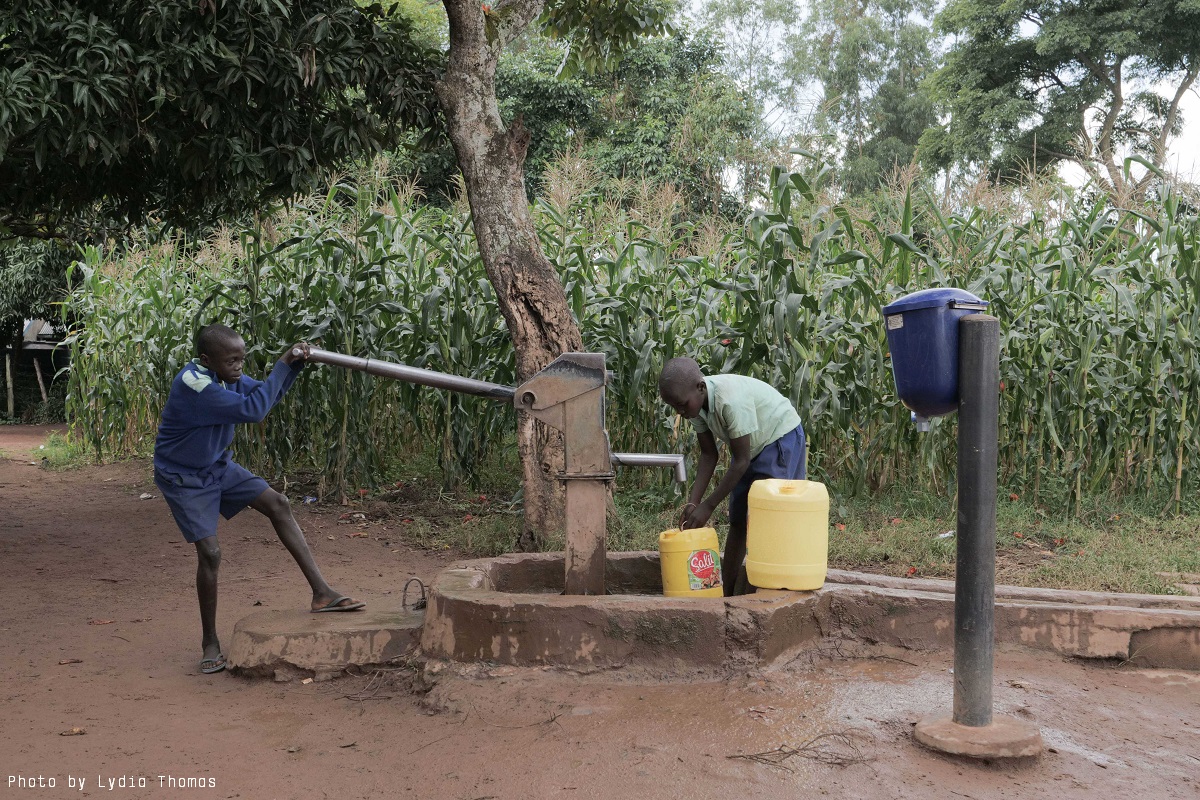
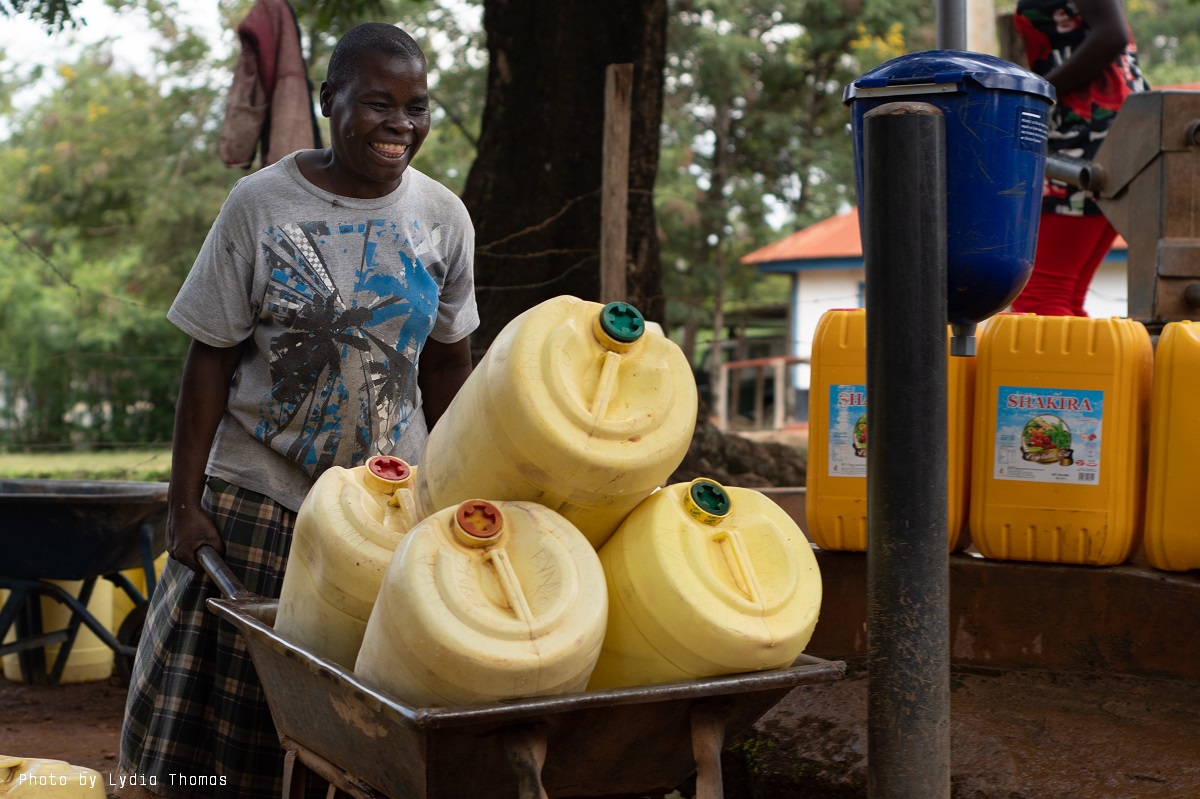
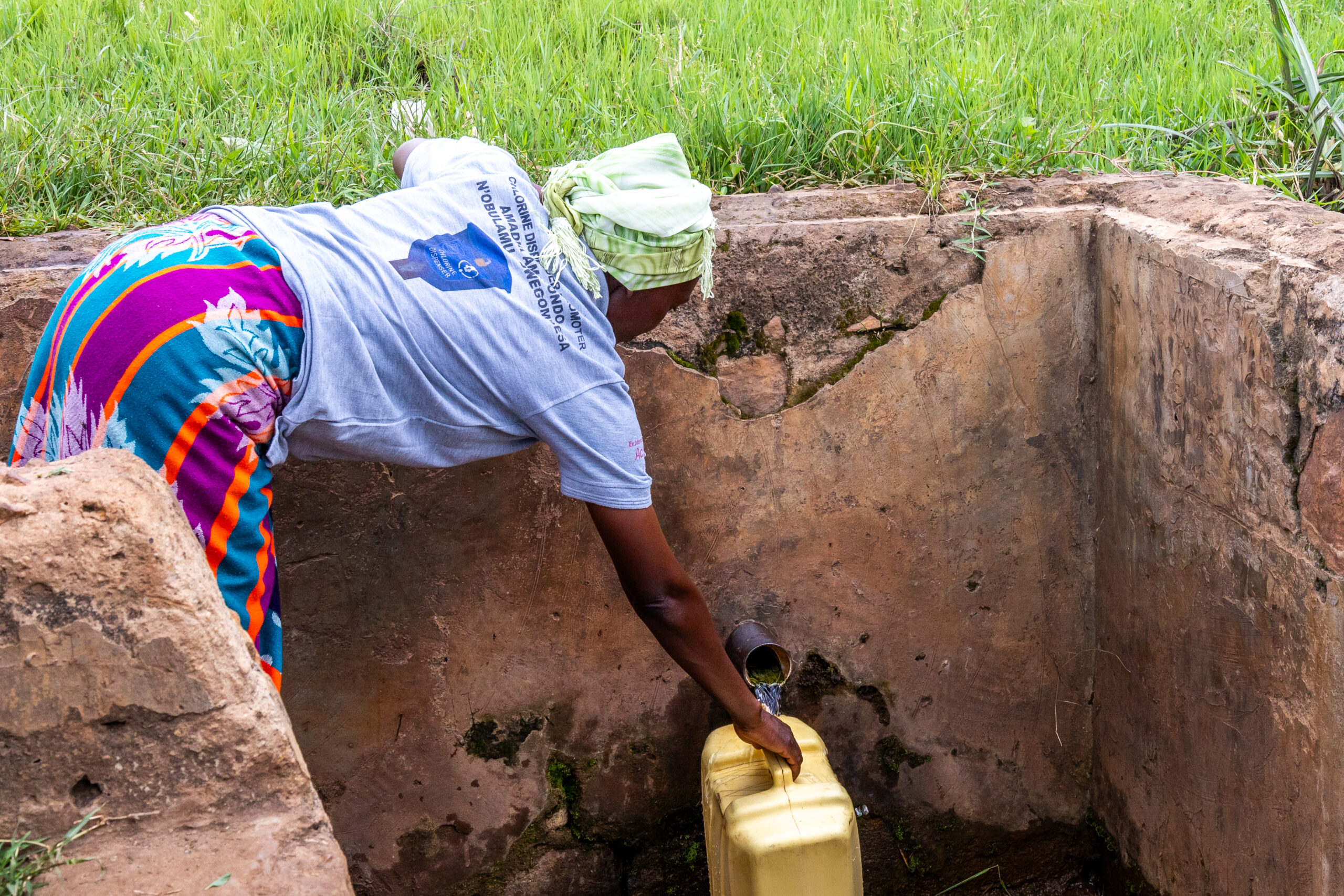
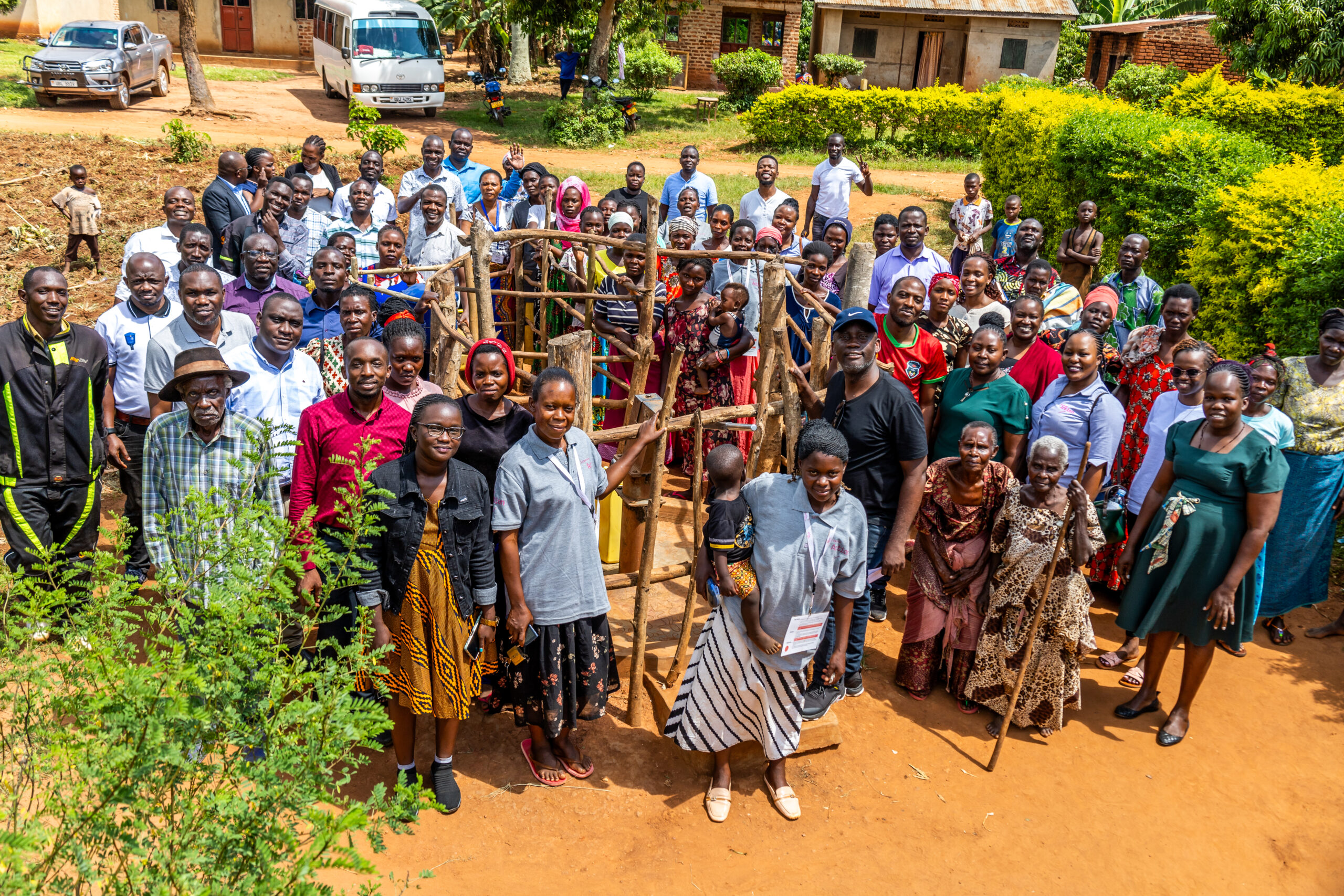
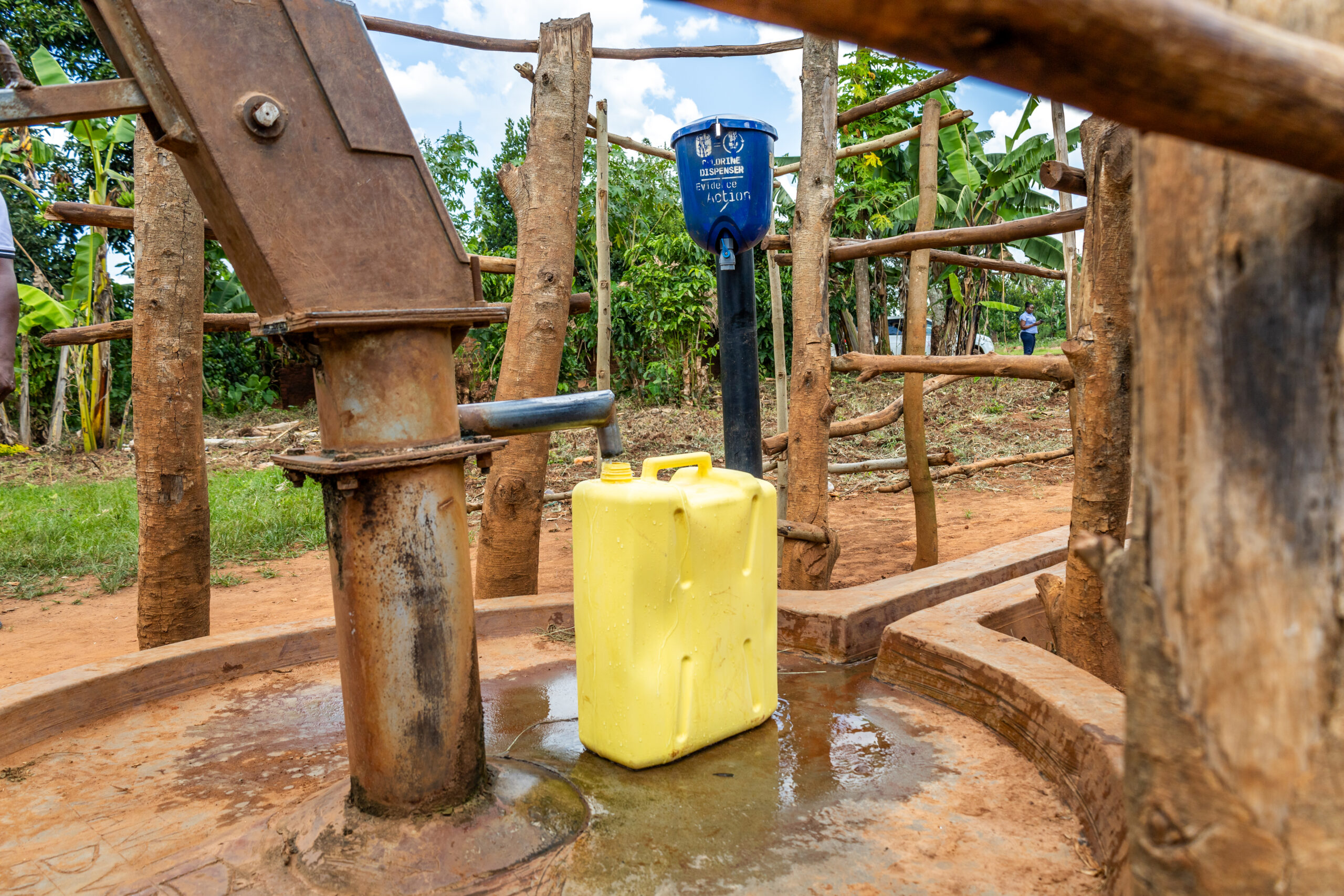
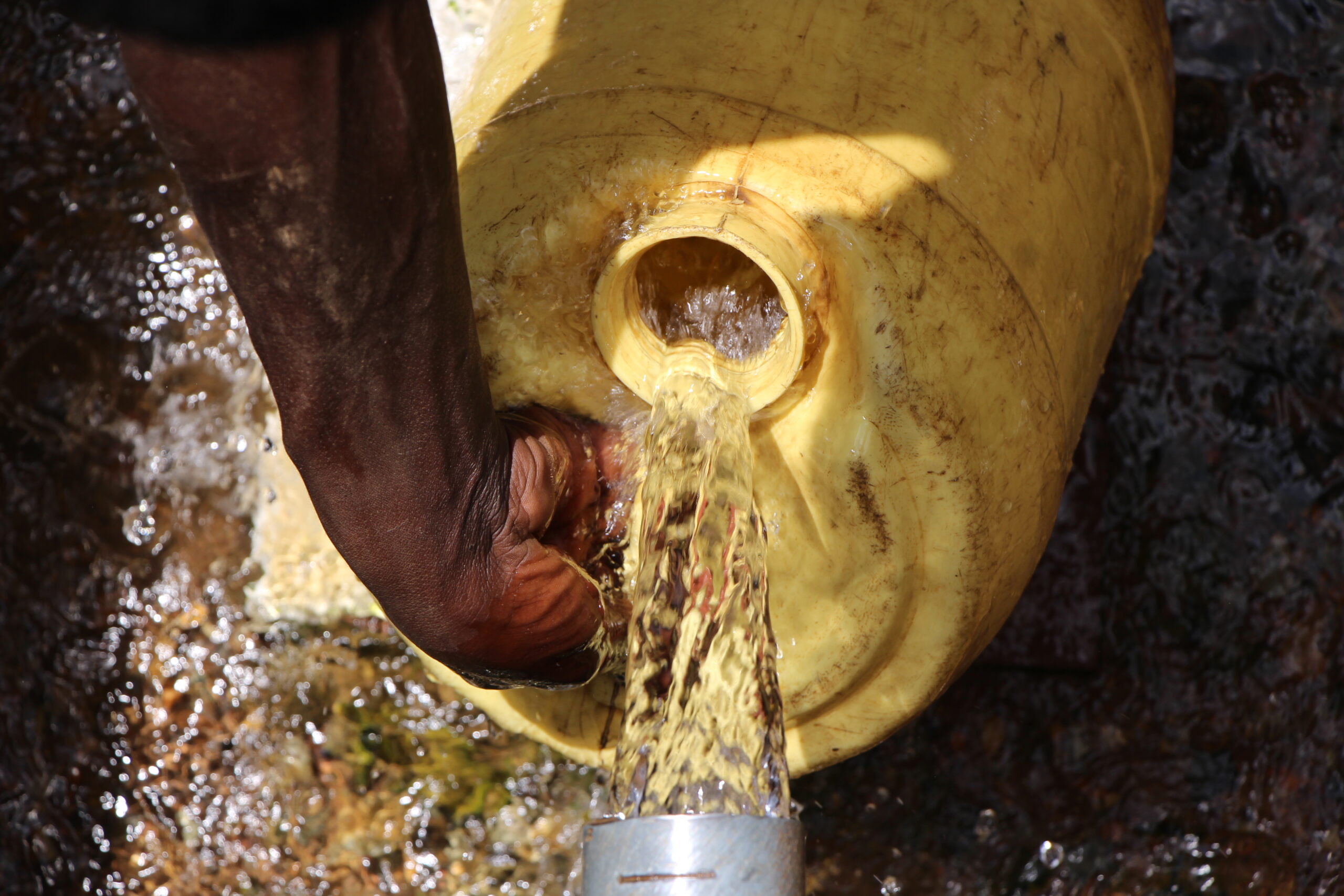
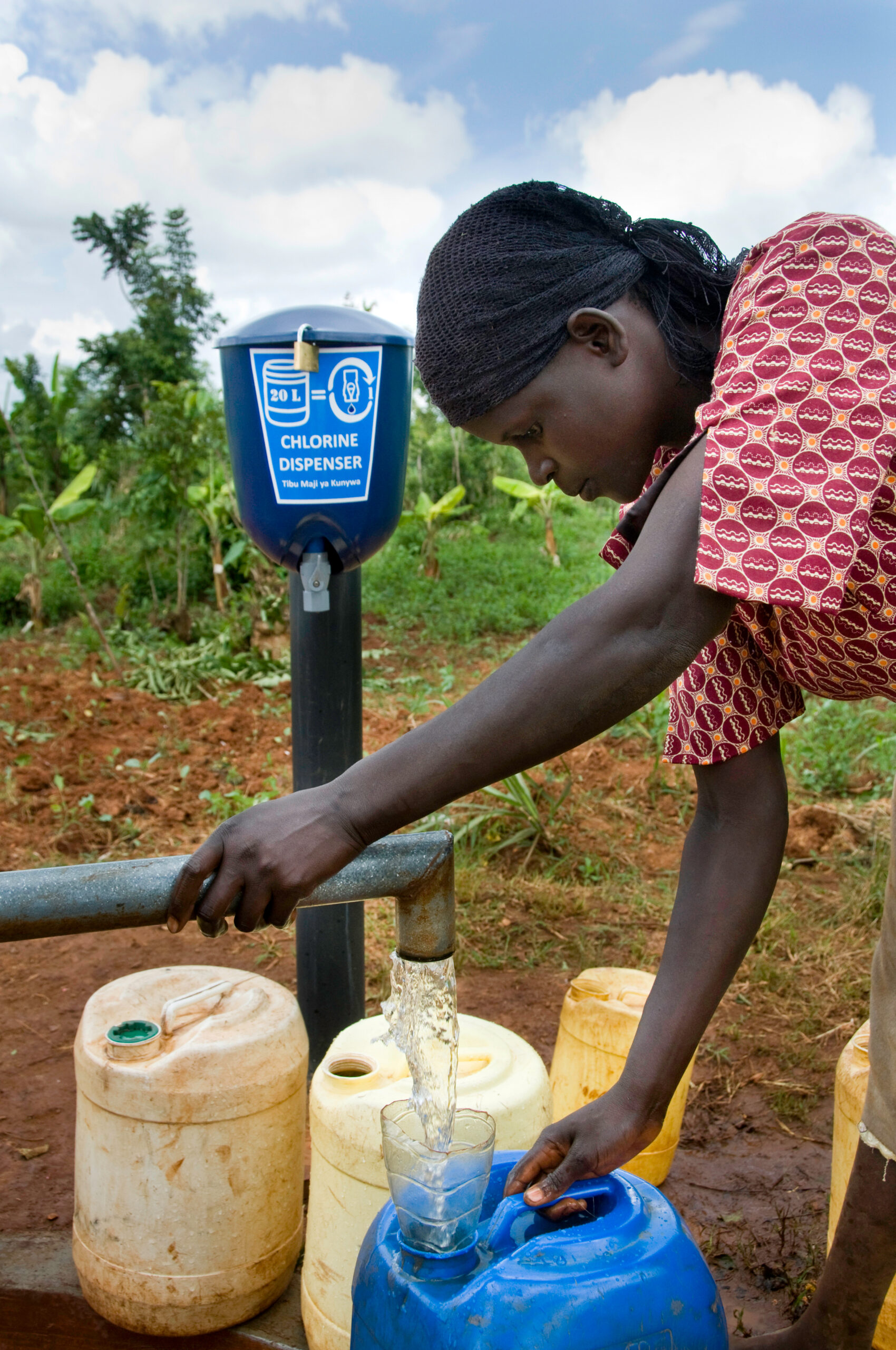
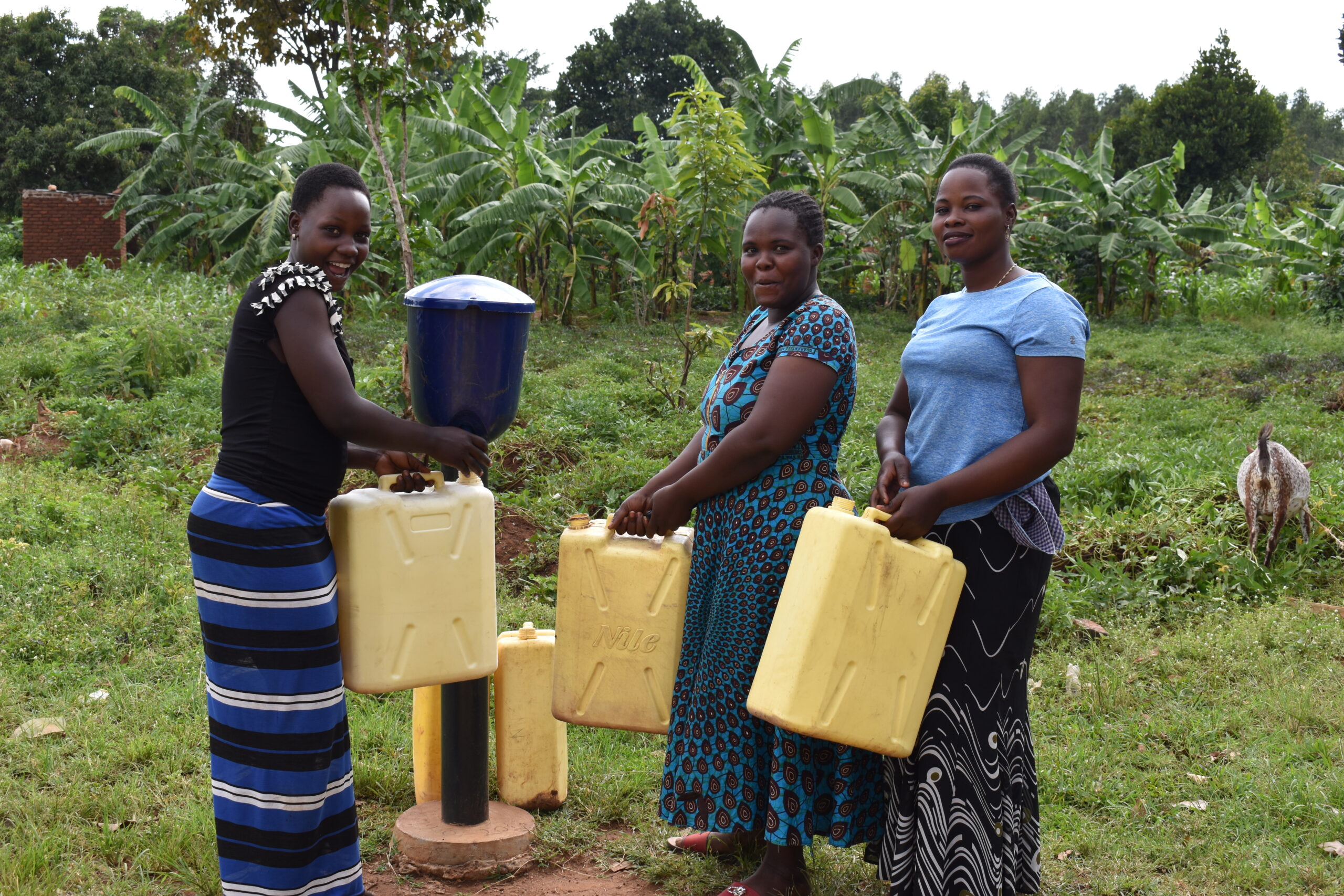
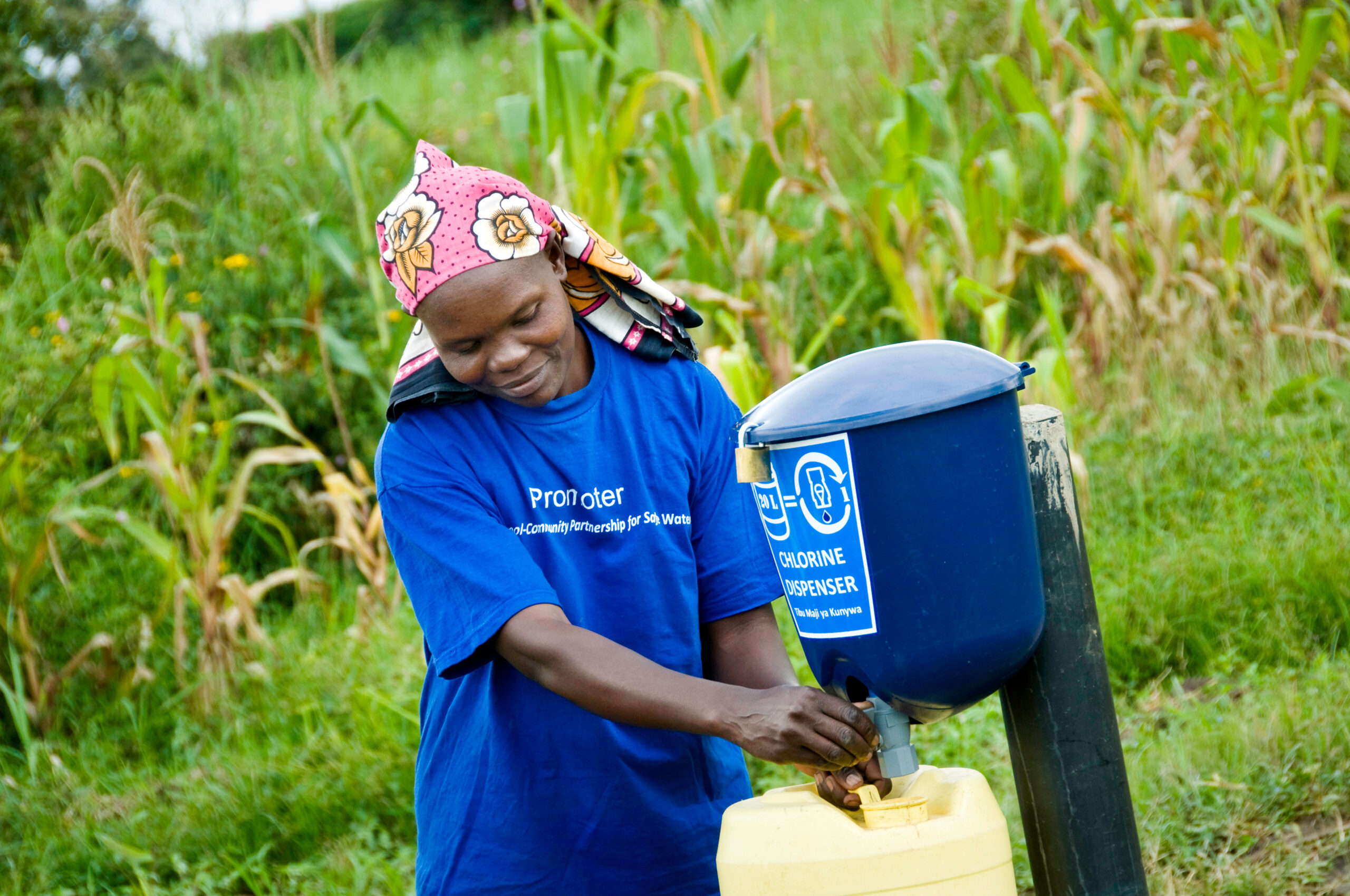
of